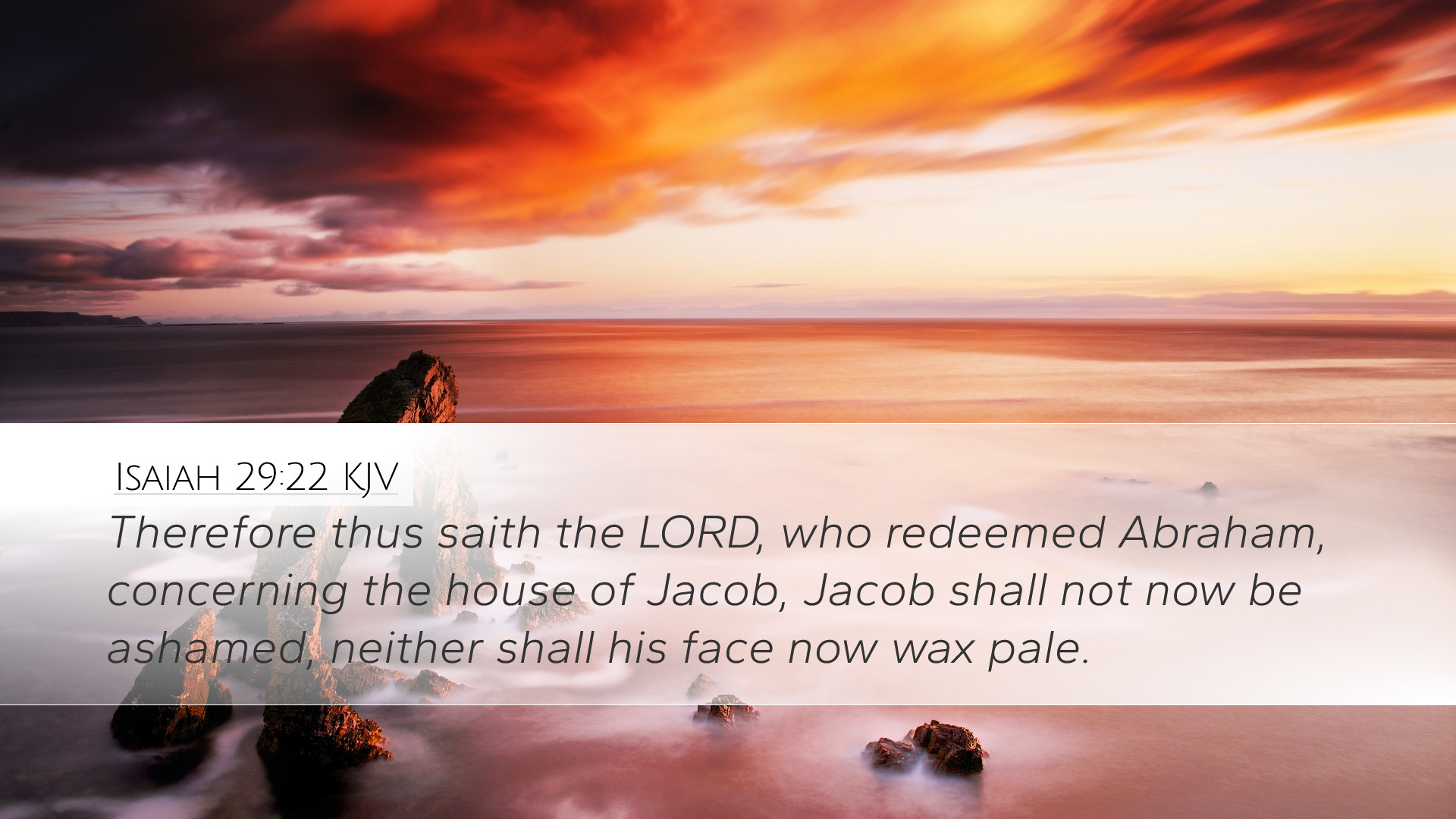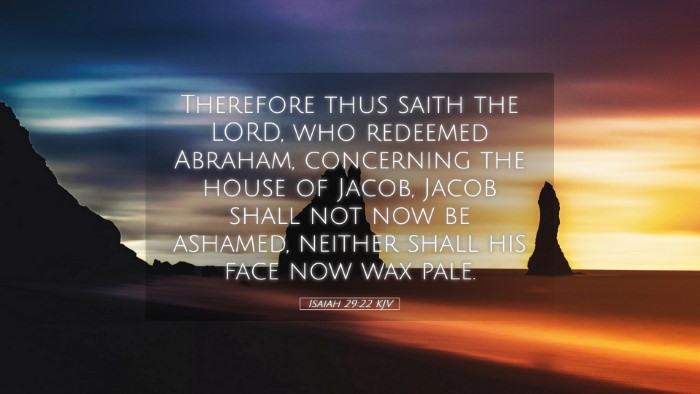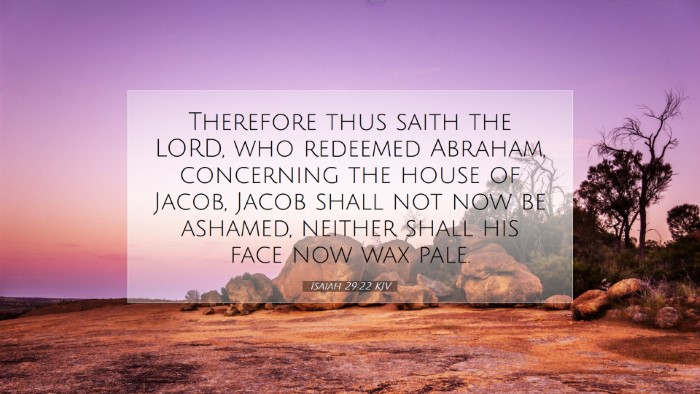Commentary on Isaiah 29:22
Introduction
The verse Isaiah 29:22 reads: "Therefore thus says the Lord, who redeemed Abraham, concerning the house of Jacob: Jacob shall no more be ashamed, nor shall his face now grow pale." This passage carries significant theological weight, touching on themes of redemption, the identity of God's people, and the transformative power of divine grace. The commentaries of Matthew Henry, Albert Barnes, and Adam Clarke provide rich layers of interpretation for this scripture.
Contextual Background
Understanding Isaiah 29:22 necessitates insight into its historical and covenantal context. Throughout the Book of Isaiah, God’s people, Israel, faced dire challenges, including political turmoil and spiritual disarray. Isaiah, as a prophet, brings both warnings and promises of hope, often weaving the narrative of Israel's exclusive covenant relationship with the Lord. In this specific verse, the mention of Abraham serves as a reminder of God's covenant promises and His redemptive work through history.
Insights from Matthew Henry
Matthew Henry, in his commentary, emphasizes the assurance God provides to His people through this verse. He indicates the significance of redemption in relation to Abraham, highlighting that God, who called and redeemed Abraham, remains committed to His people. Here are key insights from Henry:
- The Continuity of Redemption: God's action toward Jacob (Israel) is rooted in His historical dealings with Abraham. The redemption from sin and shame outlined in future promises reflects a continuity in God’s redemptive work.
- No More Shame: Henry notes that a key aspect of God’s promise is the removal of shame from His people. This is not only for their past failures but also for the future glory that awaits them through His grace.
- Restoration of Identity: The phrase “Jacob shall no more be ashamed” underscores an important transformation in identity, where the people of God are affirmed in their status and security as His chosen ones.
Insights from Albert Barnes
Albert Barnes further elucidates on the implications of this verse, particularly focusing on the themes of hope and restoration that permeate the prophetic literature. His commentary underscores the following points:
- God's Faithfulness: Barnes argues that the reference to Abraham alludes to the everlasting covenant that God established, reinforcing God's unwavering faithfulness toward His promises.
- Transformation of Perception: The idea that Jacob’s face will not grow pale signifies a transformative moment when shame and fear are replaced by confidence. This reflects a broader theological principle regarding how God reshapes the understanding and identity of His people.
- Spiritual Restoration: The verse serves as a prophetic declaration of the restoration not only of physical circumstances but of spiritual vitality among the Israelites, signifying a time of revival and renewal.
Insights from Adam Clarke
Adam Clarke's commentary brings a nuanced understanding, particularly with attention to the original Hebrew terminology and the broader eschatological implications. His statements include:
- Understanding 'Redemption': Clarke points out that “redeemed” brings a salvific connotation that implies a wider cosmic restoration, aligning with the Christian understanding of Jesus Christ fulfilling this redemption.
- Jacob vs. Israel: Clarke notes that the use of “Jacob” here is significant; it signifies the natural state of the people who, despite their flaws, are still under God’s sovereign care and affection.
- Future Hope: Clarke emphasizes the eschatological view, suggesting that the "no more ashamed" phrase points not just to present conditions, but also to the sure hope of future glory in the fulfillment of God’s promises.
Theological Implications
This verse invites deeper theological reflection, particularly regarding themes of identity, hope, and the redemptive work of God. The assurance of no shame invokes a pastoral resonance for those struggling with guilt and past failures, reminding them of God’s redemptive promise that extends through generations.
Conclusion
Isaiah 29:22 serves as a powerful declaration of hope for the people of God. Through the insights of Matthew Henry, Albert Barnes, and Adam Clarke, it is evident that this passage not only reflects on the historical context of Israel but also speaks into the lives of believers today. The promise of redemption, restoration, and the removal of shame is central to understanding the character of God and His unwavering commitment to His people. As pastors, students, theologians, and scholars wrestle with this text, the encouragement lies in the assurance that God, who redeemed Abraham and his descendants, continues to extend grace and redemption, inviting all to find their identity in Him.


